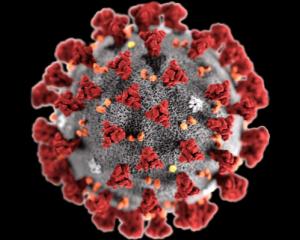
Pre- and post-natal depression has been studied exhaustively in mothers but a new study of 3500 Kiwi men has revealed how dads are also affected by the baby blues.
Using participants from the longtitudinal Growing Up In New Zealand study, University of Auckland researchers discovered that 2.3% of fathers experienced depression during their partners' pregnancy and the figure climbed to 4.3% nine months after their child was born.
Fathers most at risk of depression symptoms either felt stressed or were in poor health, although post-natal depression was also influenced by relationship factors.
Although paternal depression could not induce harm to the fetus, it could still affect the psychosocial and cognitive development of their children.
The researchers behind the study, published today in the Journal of the American Medical Association Psychiatry, now hope to increase awareness among fathers about the risk of increased depression.
Study author Dr Lisa Underwood said that while maternal ante-natal and post-natal depression were recognised and known to be associated with poor outcomes for women and children, there had been little done to identify peri-natal depression symptoms in men.
"As in many other countries, New Zealand women are assessed for postnatal depression following childbirth," she said.
"There is no routine screening of women during pregnancy and none for fathers before or after the birth of their children, since they are not usually engaged in routine perinatal care.
"In the present study of fathers, self-reported poor health and self-perceived stress during the pregnancy were consistently linked to paternal depression during the pregnancy."
Other risks only associated with paternal postnatal depression included a history of depression, unemployment, relationship status and family environments during the postnatal period.
Of these, the strongest predictor of paternal depression was no longer being in a relationship with the child's mother, Dr Underwood said.
"Increasingly, we are becoming aware of the influence that fathers have on their children's psychosocial and cognitive development."
Given the potential for paternal depression to have direct and indirect effects on children, it was important that we recognise and treat symptoms among fathers early.
"Arguably, the first step in doing this is to raise awareness about factors that lead to increased risks among fathers themselves."
Combined with two recent papers reporting on New Zealand mothers' antenatal and postnatal depression, the study provided a view of the separate and common risk factors for depression in parents which, if detected early and appropriately managed, could limit the impact on their child's wellbeing.
All studies drew on interviews with families involved in the Growing Up in New Zealand study, which was tracking the development of more than 6000 children born in 2009 and 2010.
By the numbers: new dads and the baby blues
• During the peri-natal period (from the third trimester of pregnancy to nine months after birth), 217 (6.2%) of the men in the study experienced symptoms of depression compared with 3306 who did not have elevated depression symptoms.
• Around one in 25 men reported symptoms of post-natal depression while ante-natal depression only affected about one in 50.
• By comparison, more mothers suffered depression symptoms before than after the birth of their children.
• One in six of the mothers interviewed in the Growing Up in New Zealand study cohort reported significant depressive symptoms at either the ante-natal interview or when their children were nine months old.
• One in eight experienced ante-natal depression symptoms with one in 12 experiencing symptoms post-natally, although these were not always the same mothers.
• One in four women who had ante-natal depression also experienced post-natal depression and more than one in three with post-natal depression had experienced ante-natal depression.
• In the university's studies focusing on mothers, increased risks of experiencing depressive symptoms were associated with Pacific or Asian ethnicity, stress, anxiety, a previous history of doctor diagnosed depression and difficult relationships and family environments.











